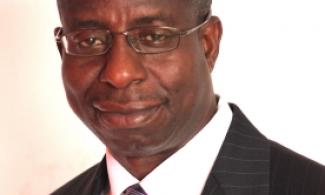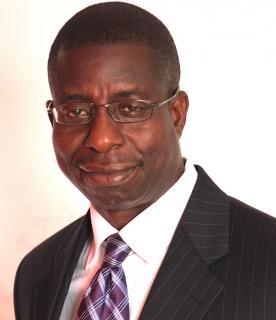
Simultaneously, Jega blunted one biting criticism of President Jonathan’s use of his awesome powers in the course of the two south-western states’ gubernatorial elections. By either ordering or condoning what was effectively a military siege to either state in the run-up to the elections, Jonathan played an open and partisan hand, say the critics.
By all sober reckoning, Professor Attahiru Jega has done quite well in his last two outings as Nigeria’s chief electoral officer and, so, democracy’s chief midwife in our turbulent turbulent country. If Ekiti broke the hearts of progressives, of those who believe that “man does not live alone by bread” — in other words, that the gospel of “Man shall live alone for his stomach,” according to Saints Adedibu and Fayose, is perversion itself — Osun offered them consolation. With the hard-fought but clear victory of Ogbeni Rauf Aregbesola in the 9 August election, Jega gave hope to a nation pining, panting even, for a sign of change in the still uninspiring effort of governing ourselves sensibly. If against the seemingly unstoppable electoral machine of the ruling party, oiled by its ability to dispense power and privilege, a harried governor from a new collation party still getting to know all of its new members could win re-election, then 2015 might not be all the predicted gloom and doom. Electorally speaking, only, I must be quick to add, for the forces that tear at corporate Nigeria are legion!

Simultaneously, Jega blunted one biting criticism of President Jonathan’s use of his awesome powers in the course of the two south-western states’ gubernatorial elections. By either ordering or condoning what was effectively a military siege to either state in the run-up to the elections, Jonathan played an open and partisan hand, say the critics. The arrest and violation of the freedom of movement of leaders of the rival All Progressives Congress, including governors of the party from other states, while allowing operatives of his own party unrestricted roaming rights across the length and breadth of both states, showed a far greater interest in his personal political fortunes than in the fate of Nigeria, they charged.
These critics did not really need any further proof, but Jonathan’s minister of state for defence, the garrulous Musiliu Obanikoro, was nonetheless eager to erase any doubts. And so he issued threats and admonitions, purportedly intended for all mischief-makers, only that they appeared to belong exclusively to the opposition party. To curtail them, about 73,000 troops and officials drawn from across the entire security apparatus of the nation — army, police, SSS, civil defence corps, etc — were deployed to Osun State. A visitor from saner climes would be forgiven for thinking that they were needed to quell a riotous insurrection; certainly not for the election of a governor. And then Mrs Marilyn Ogar showed us how they do intelligence analysis at the State Security Services. The occurrence of bomb explosions after the two governorship elections the opposition party lost, contrasted with the incident-free aftermath of the two they won, shows, she said, that the opposition party is behind the bloody violence bedeviling Nigeria. She was not done. With her inference hardly mistakable, she claimed to have declined offers of a bribe by certain politicians to compromise the election. Why, she even reinstated the offence of wandering in our laws! Clearly, Mrs Ogar would not be outdone by Alhaji Obanikoro, but if the reports are true then she can now prove her allegations in court and dress herself in glory as a heroine of the great struggle to save troubled democracy.
Nor would Obanikoro be upstaged. Thus, in congratulating Aregbesola, he “saluted” the Independent National Electoral Commission but “particularly, our Military and other security forces for . . . ensur[ing] a peaceful, free and fair election.” He did not mince words. “But for the efforts of our Military in Osun State,” he declared, “the elections could have been marred by violence.”
He is not totally wrong. I recall my astonishment when I asked Senator Femi Ojudu, over the phone, whether the bleak report he was giving me of proceedings in Ekiti was due to the expected rigging wrought by the PDP under military protection and he answered, “No, there is no rigging. Our people seem not to want a visionary programme of development and accountability.” Painful as the news was to me, I believed him that the election reflected the prevailing will of the people. Still, 73,000 military and other security officials for a state election? Aren’t elections a civic affair? Why should preparations to vote be indistinguishable from mobilisation for war with an enemy foreign?
For as long I have lived, there has been no free and fair national election, which until recently always included state governors’ elections at about the same time. The lone exception was the 12 June 1993 election and we know how that ended, proving that the means will most often than not taint and jeopardise the end, however seemingly benevolent in the short run. This is why, I think, Aregbesola, even in victory, felt constrained to both praise INEC for conducting “a largely free and fair election” and to pillory the military for conduct detrimental to democracy and the rule of law. Many of the troops stationed in the state, he asserted, violated the constitution by turning themselves into a terror gang after specific targets, and so into partisan agents of the ruling party.
The matter might boil down to the overzealousness of a few who cannot “differentiate” between legitimate and illegitimate orders or who, in their craven eagerness to please power, please the president, send themselves on unconstitutional errands. And it may be that the temporary answer to clamping down on opposition figures, on molesting, harassing and intimidating supporters of the opposition party is for soldiers and policemen to have the courage, henceforth, of “resisting wrong orders” that are “antithetical” to the constitution, as Aregbesola urges. What is unmistakable, however, is that for as long as we can only vote under the iron cordon of military troops massed round the ballot box, our elections look more like military operations than civic actions. And to that extent, we prolong the poisonous ethic and tragic memory of military dictatorship in our land.